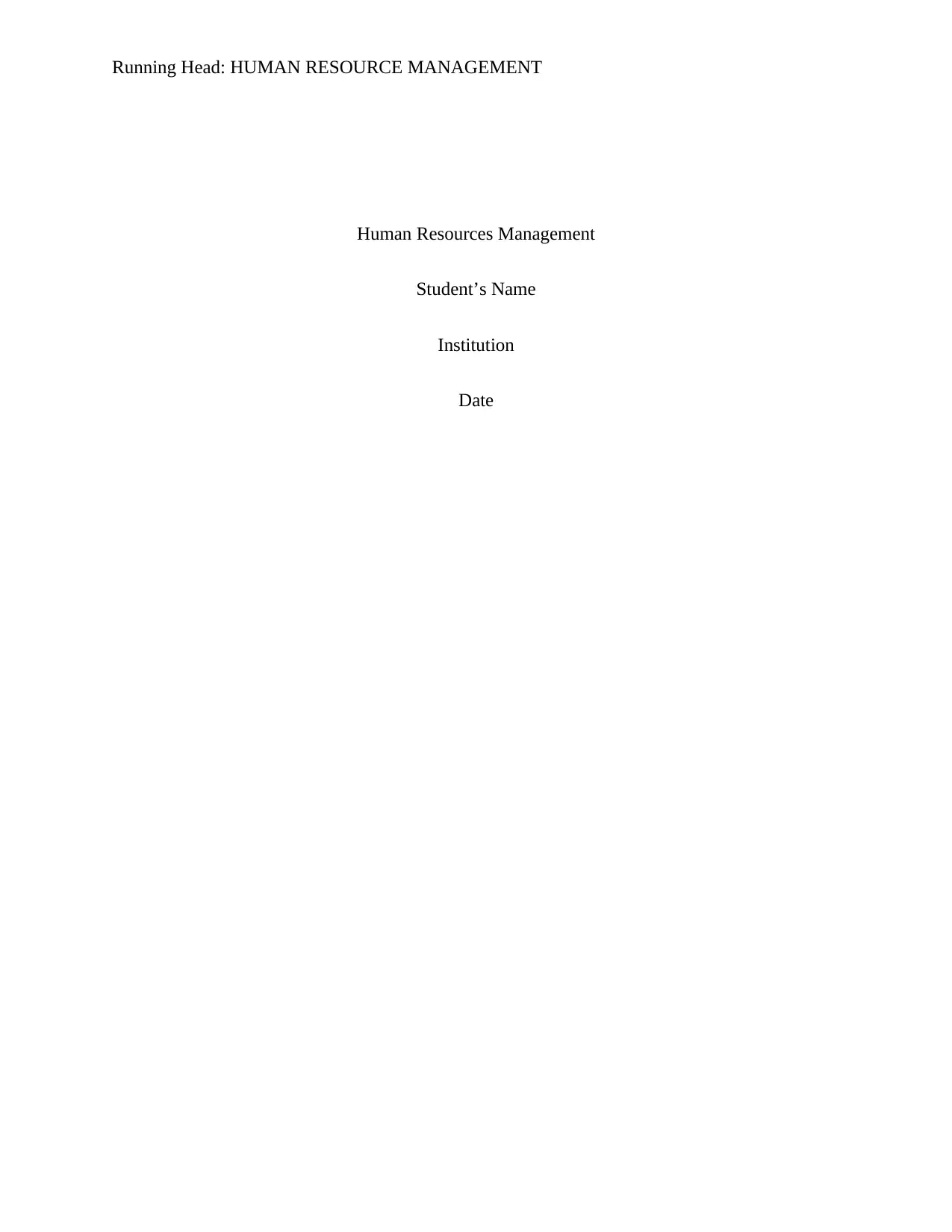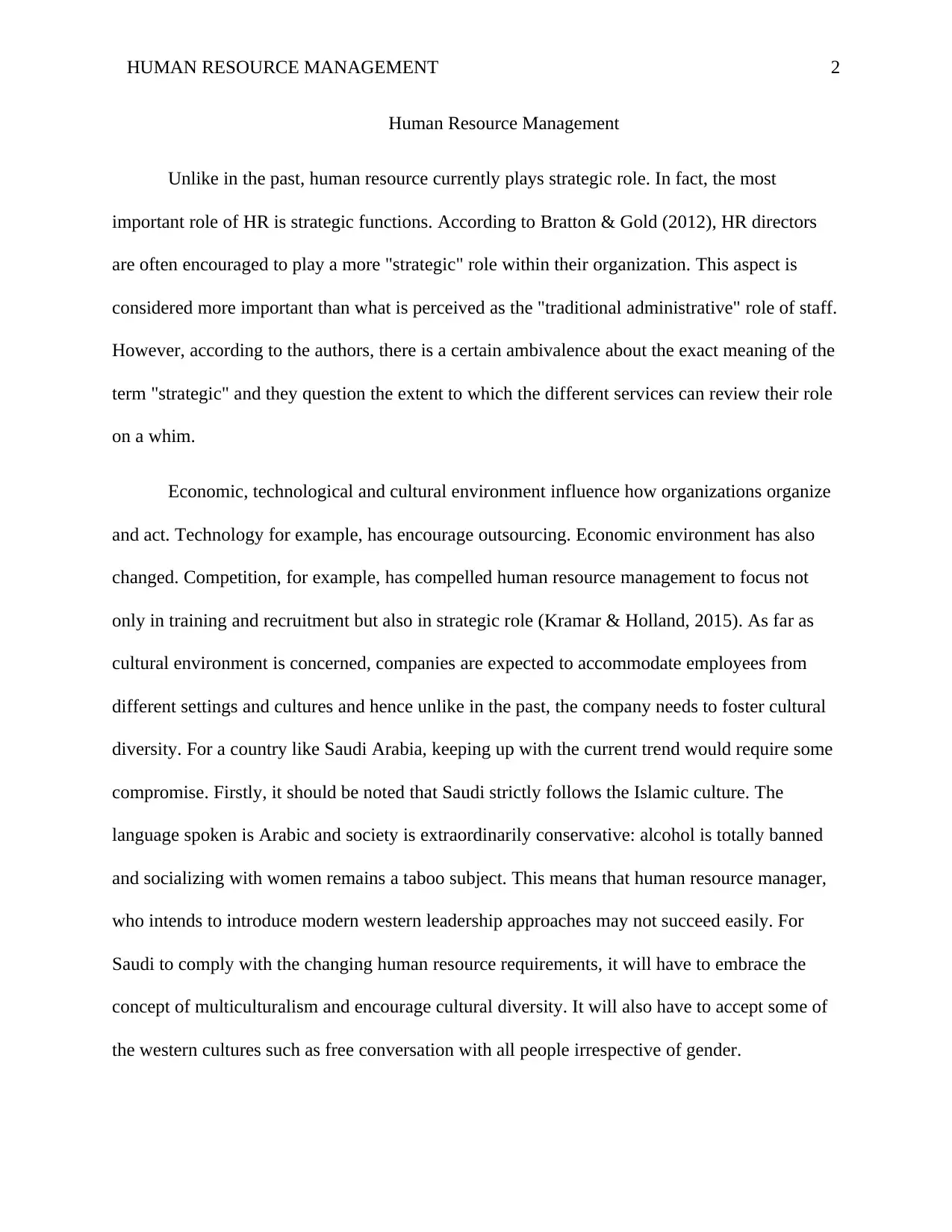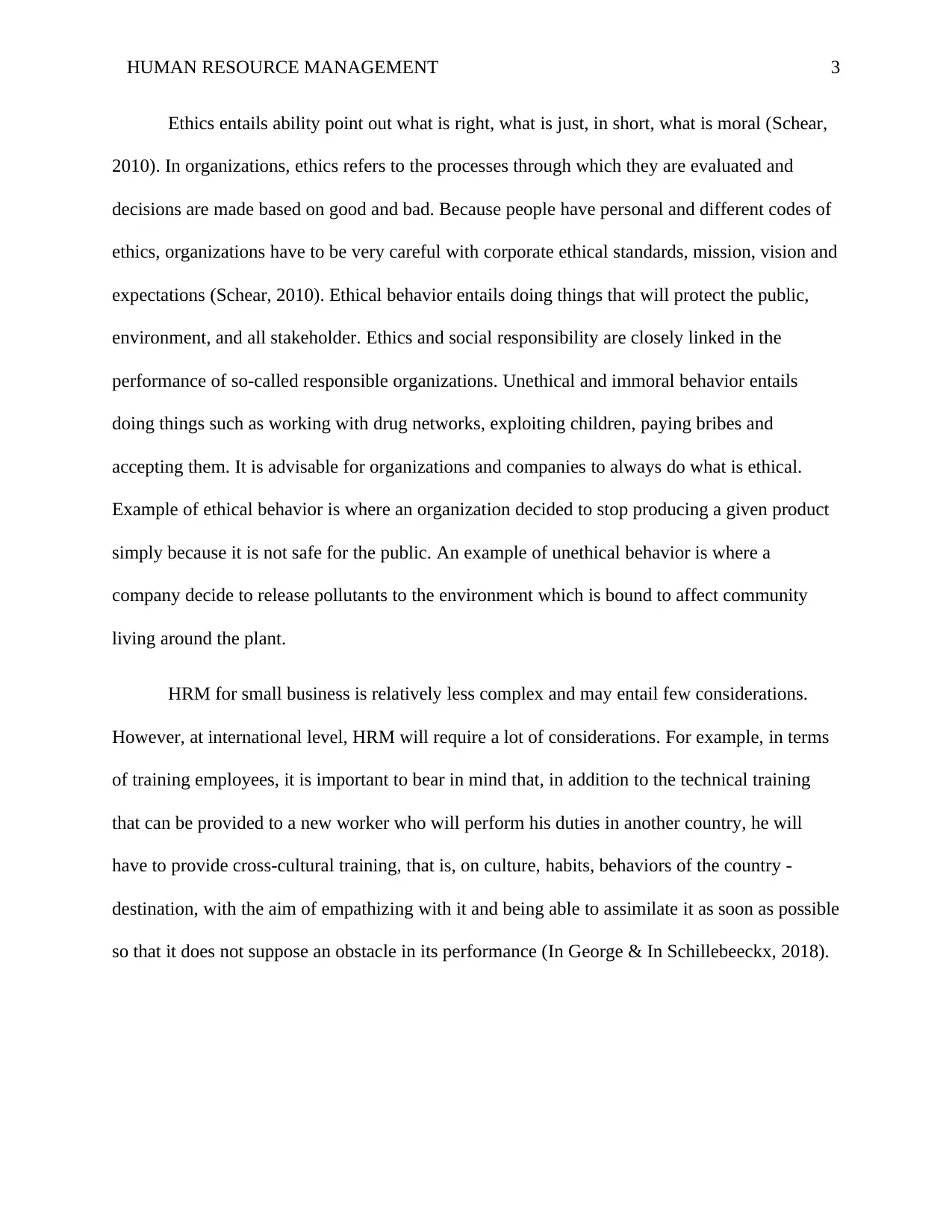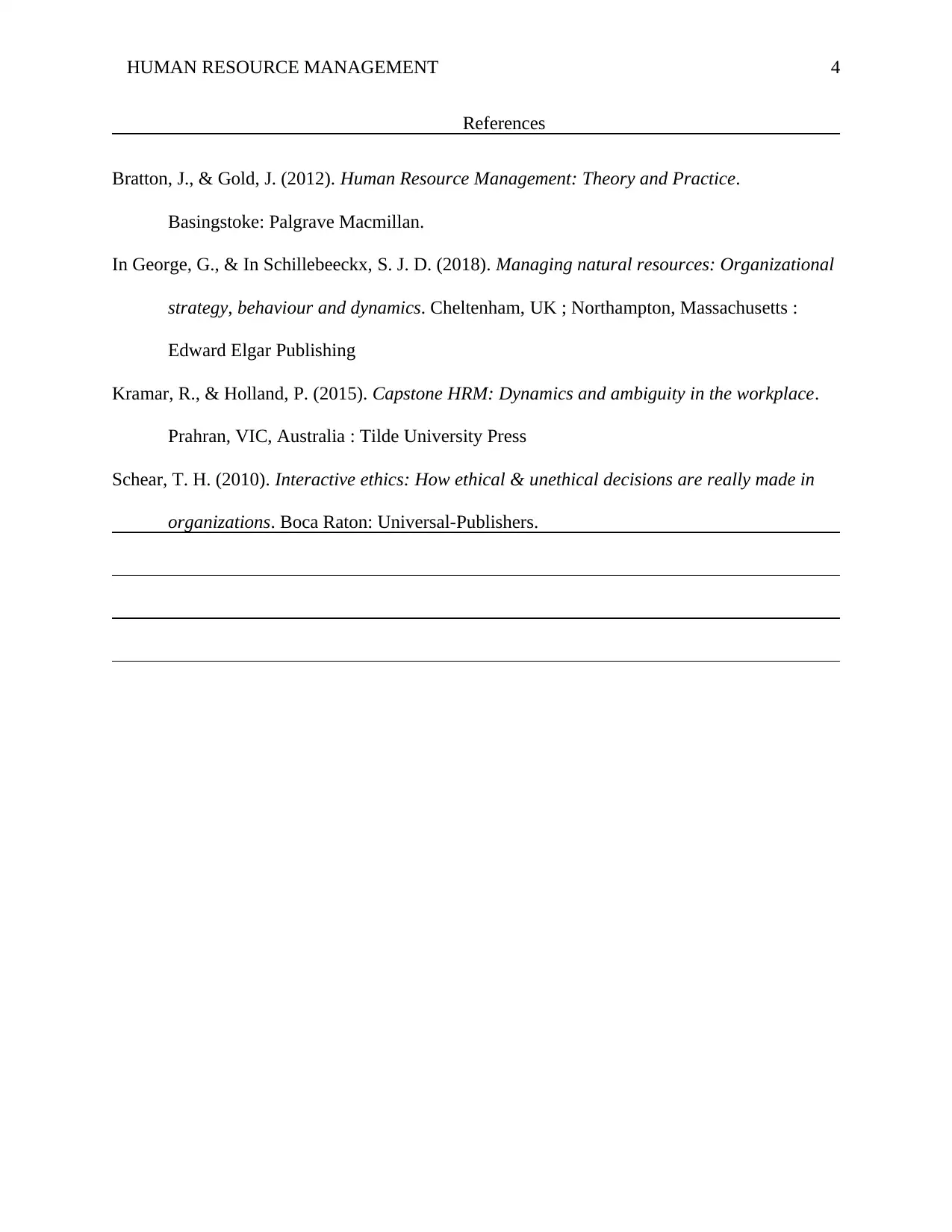Strategic HRM: Cultural Adaptation and Ethics in Global Business
VerifiedAdded on 2023/06/03
|4
|809
|460
Essay
AI Summary
This essay examines the evolving role of Human Resource Management (HRM), emphasizing its shift from traditional administrative functions to strategic importance. It highlights how economic, technological, and cultural environments influence organizational behavior, particularly in the context of globalization. The essay explores the challenges and necessary compromises for countries like Saudi Arabia in adapting to modern HRM practices, focusing on embracing multiculturalism and cultural diversity. It further discusses the significance of ethics in organizations, linking ethical behavior with social responsibility and providing examples of both ethical and unethical conduct. The differences between HRM in small businesses and at the international level are also addressed, noting the importance of cross-cultural training for employees working abroad. Desklib offers students access to this essay along with a wealth of other resources, including past papers and solved assignments, to aid in their studies.
1 out of 4











![[object Object]](/_next/static/media/star-bottom.7253800d.svg)